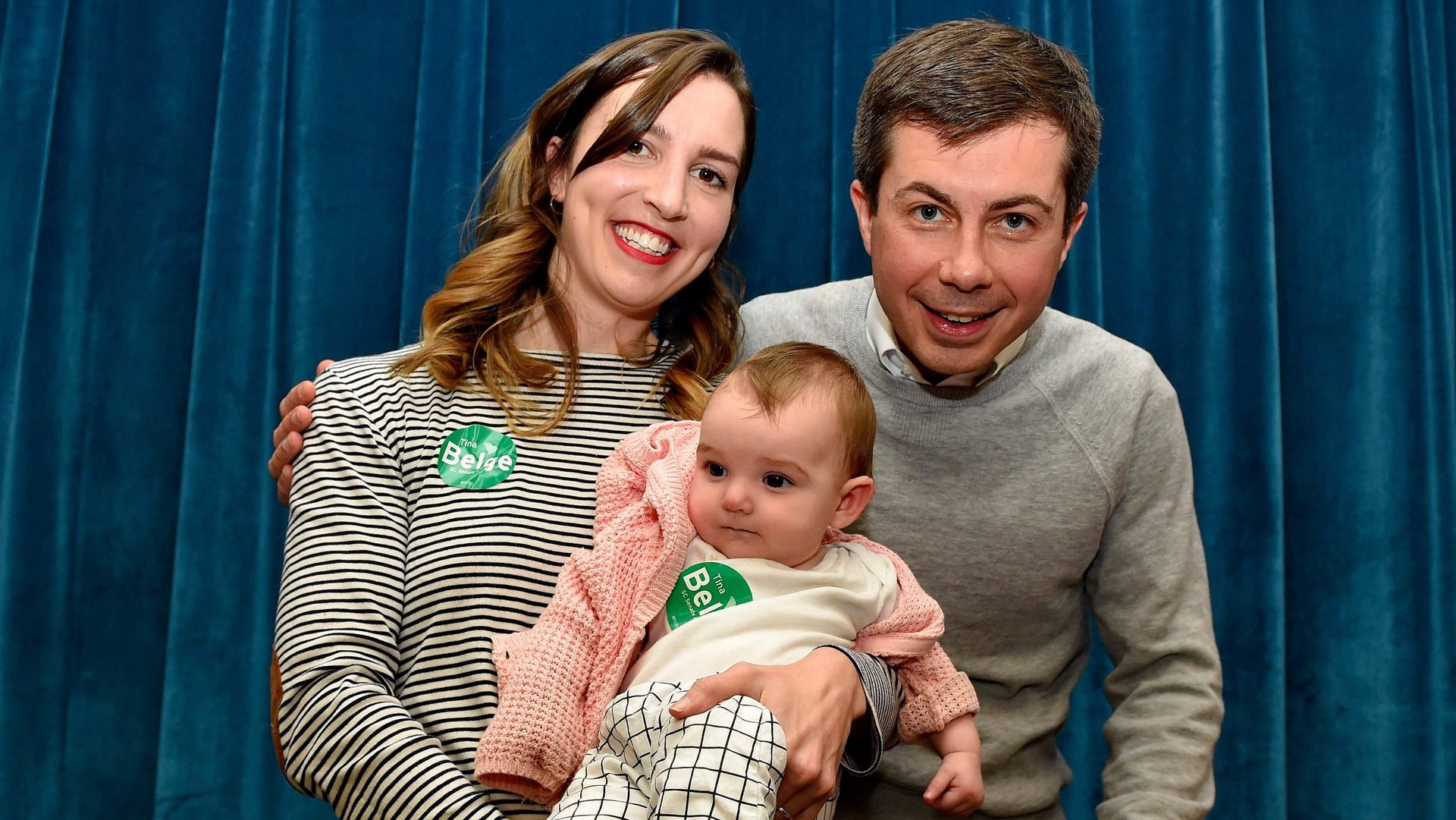Mayor Pete is the Mister Rogers of presidential candidates
Just weeks ago, very few would have recognized the name Pete Buttigieg, and even fewer would have known how to pronounce it. (It’s boo-tih-jej.)


Just weeks ago, very few would have recognized the name Pete Buttigieg, and even fewer would have known how to pronounce it. (It’s boo-tih-jej.)
Now, the South Bend, Indiana mayor is the talk of the country as his presidential run gains momentum.
Buttigieg is young—he’s only 37—and has no federal experience. But even before officially announcing his candidacy for the Democratic primaries (so far he has only launched an exploratory committee), he has raised an impressive $7 million in about three months. His campaign book, Shortest Way Home, is selling well on Amazon, and he is rising in the polls, ahead of better-known names such as Cory Booker and Amy Klobuchar.
His broad and growing appeal might surprise some, but it shouldn’t. His gentle manner and nerdy demeanor are a respite from the polarized and uncivil politics many Americans say are stressing them out.
He is, in a way, the political equivalent of Mister Rogers, the beloved children TV personality who for over three decades taught American preschoolers radical acceptance under the mantra “there’s no person in the whole world like you; and I like you just the way you are.”
Mister Rogers was a soft-spoken, kind man who (sometimes hesitantly) tackled important social issues—race, disability, homosexuality. He presented himself as the everyday neighbor, but had a sophisticated understanding of human psyche, and a radical empathy that allowed him, amongst other successes, to secure funding for children TV in a Senate hearing of unusual emotional impact.
Like him, Buttigieg’s conciliatory and moderate attitude may be confused with passiveness, but it could well be a harbinger of change. He, too, comes across as a non-threatening product of the status quo. He doesn’t wear Rogers’s signature cardigan, but has a similar penchant for normcore (amongst the things he can’t live without are cushioned boot socks.) He has not one, but two cute rescue dogs—well, First Dog Truman is his husband’s, but that makes it even sweeter—and a relationship so lovely it’s hard to read about his wedding in the New York Times’s “vows” section without melting a little.
In the same way it did for Rogers, his slightly boring, mainstream façade could help Americans process issues that make them feel anxious, or scared.
A veteran of the war in Afghanistan with an impressive academic pedigree (Harvard degree, Rhodes scholar at Oxford), Buttigieg was elected mayor of South Bend in 2011 at only 29. He proceeded to turn the city’s economics around through what he describes in his book as a pragmatic but fair approach.
Buttigieg is a Democrat in a Republican stronghold. He’s open to all religions yet still solidly Christian, progressive without being a rebel. Of course, there is privilege in that. His record on how he dealt with minorities in South Bend—particularly its large black population—is bound to undergo serious scrutiny. For one thing, he will have to prove he is capable of standing up for the poor as much as for business development. After all, Buttigieg is yet another white guy wanting to be president, and though he would be the first LGBTQ person to hold the US’s highest office, polls suggest most Americans are fine with that.
Still, he is beloved in his town, where his constituents like to share heartwarming stories of his good deeds, like the time he rushed to the emergency room to translate for an Arabic-speaking patient. Because Buttigieg, affectionately dubbed “Mayor Pete,” isn’t just compassionate and generous—he also speaks Arabic, and seven other languages, too.
Sure, he does not attack conservatives with the feisty energy more left-leaning Democrats would like to see in a presidential candidate. Yet there is something refreshing about his approach in a political scene dominated by limelight-chasing politicians with cult-like followings. It’s not unthinkable that voters would pick a humble “friendly neighbor” president with a hard-to-pronounce last name over a leader with the brand recognition of Donald Trump, Bernie Sanders, or even Beto O’Rourke.